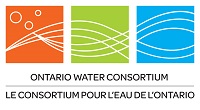
SOWC is featured in the Globe and Mail’s “Canada Competes” section. The video piece focuses on how SOWC and IBM are developing a ‘smarter watershed.’ To view the full video, click here.
An unassuming and peaceful stream that flows beneath a small bridge in Mannheim, Wilmont County is playing a large role in the work of SOWC and researchers dedicated to the project. It’s part of a network of water monitoring stations that analyze water flowing from a mix of urban and rural environments, making the location (just outside Kitchener city limits south of highway 7) perfect for collecting water data within the Grand River watershed.
“The Grand is a large river facing real pressure from growth and development in the region, and we are studying how we manage our impacts on water systems – an issue faced around the world,” said Brenda Lucas, Operations Manager at SOWC. “How do we manage the complexities of the different factors affecting our drinking water quality and our wastewater management? We need to look at these things in real world environments.”

Graduate and co-op students collect water samples and stream chemistry data
SOWC is using the Grand River watershed as a living laboratory that allows researchers to venture from the lab and examine an ecosystem through the Watershed node of the platform. This node is also the pilot for implementing a data platform invested by IBM, which is helping our world become ‘smarter’ when it comes to decisions regarding water.
“The private sector engagement and involvement in this project is one of its main strengths,” said Lucas. “IBM is supporting the initiative by helping us apply its ‘smarter water’ platform on a watershed basis. They have provided hardware and software and brought the expertise to customize it for our watershed monitoring platform.”
Like never before, the big tools being implemented through new technologies within these studies are allowing researchers to manage, analyze and present the mass of data in real time to make new discoveries.
“In the past, our research was limited by our lack of ability to store the massive amounts of data collected from these sites,” said Dr. David Rudolph, professor of earth and environmental sciences at the University of Waterloo. “The sophisticated software that we are using today allows us to collect a tremendous amount of real-time information to analyze and interpret a watershed.”
Furthermore, this sensor technology is providing vital information on how watersheds are being impacted by human activities, and how policy-makers can keep residents safe.
“We all interact with watershed environments, whether that’s through living in our homes or driving to work,” said Rudolph. “The data collected allows us to create strategies on how to manage these ecosystems, and provide policy makers with recommendations on determining and predicting possible threats, such as contamination or flooding.”
The data platform is the result of a collaborative effort within the SOWC between academic partners and industry. It will provide a better understanding of the actual ecosystem dynamics which will help us to improve water management and develop new innovations at the same time. The data platform will be the backbone for a whole ‘smarter watershed’ as part of the broader SOWC platform for research, development, testing and demonstration of water technologies.

